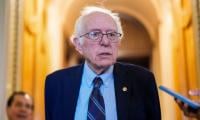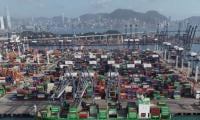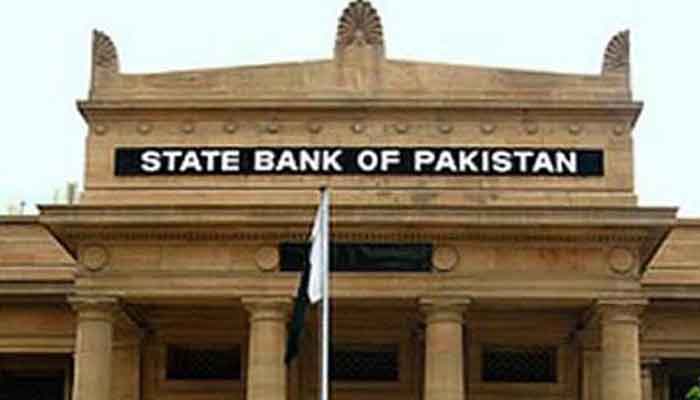State Bank of Pakistan says recent spike in inflation transitory
ISLAMABAD: The State Bank of Pakistan (SBP) has declared recent spike in inflationary pressure as ‘transitory’ phenomena, saying that the headline inflation of 14.6 percent was broadly in line with projection of the central bank.
The recent spike in inflation had shocked many but the State Bank took stance that they were expecting this kind of spike, however, it was transitory phenomena and there was no need to bring any change in the earlier made projections.
This correspondent contacted high-ups of Planning Ministry, Finance Ministry and Pakistan Bureau of Statistics (PBS) and many top officials agreed that the wheat/flour crisis proved to be catalyst for increasing inflationary pressure during January 2020. House rent, prices of perishable food items and energy prices also pushed up headline inflation up to historic level.
With rising headline inflation that had touched historic peak of last 10 years, the core inflation also went up by few percentage points and now stood close to 7.9 percent for January 2020.
Top official sources who are dealing with inflationary figures told The News in background discussions that the data of food prices were collected from nine to 15 of every month and it was period of peak prices of food items in the both rural and urban markets of the country.
The extreme weather conditions damaged essential food crops such as the crop of tomato was delayed. The prices of chicken escalated. The major problem arose when the wheat crisis hit the country and its prices escalated in the domestic market. The major contributor was wheat/flour price that fuelled inflation.
Now Islamabad authorities were confident that inflationary pressure would start witnessing ease from the current month (February 2020) and it was hoped that the headline inflation would come down significantly.
On monthly average, it would remain hovering around 12.5 percent for Feb 2020. Although, the government is mulling over the option to hike gas prices this week but it will not result into unprecedented spike in inflationary pressure.
In the presence of higher inflationary numbers, there are increasing apprehensions that the policy rate might further go up in the coming monetary policy that would now be made after two months probably in March 2020.
The SBP chief spokesman Abid Qamar said inflation in January 2020 was pushed upwards by yet another supply-side shock to food and administered prices such as fuel. “This inflation number is broadly in line with the SBP’s inflation projections produced at the time of January MPC (Monetary Policy Committee) 2020 meeting,” he added.
Indeed, he said, the January 2020 MPS noted that “recent inflation outturns have been on the high side and there remain near-term risks to inflation primarily from food price shocks and potential increases in utility prices.”
Having said that, the current monetary policy stance is appropriate to bring inflation down to the medium-term target range of 5-7 percent over the next six to eight quarters, the SBP spokesman concluded.
-
 Eric Dane’s Friends Initiate GoFundMe To 'support' His Two Daughters After His Death At 53
Eric Dane’s Friends Initiate GoFundMe To 'support' His Two Daughters After His Death At 53 -
 Internet Erupts After Candace Owens Claims Elon Musk And Sam Altman Are ‘not Human’
Internet Erupts After Candace Owens Claims Elon Musk And Sam Altman Are ‘not Human’ -
 Will Princess Beatrice, Eugenie Stay In Contact With Andrew? Source Speaks Out
Will Princess Beatrice, Eugenie Stay In Contact With Andrew? Source Speaks Out -
 ‘AI Revolution Is Coming Fast & US Has No Clue,’ Bernie Sanders Warns Of Speed Of Disruption
‘AI Revolution Is Coming Fast & US Has No Clue,’ Bernie Sanders Warns Of Speed Of Disruption -
 Hong Kong Touts Stability,unique Trade Advantages As Trump’s Global Tariff Sparks Market Volatility
Hong Kong Touts Stability,unique Trade Advantages As Trump’s Global Tariff Sparks Market Volatility -
 ‘Miracle On Ice’ Redux? US Men Chase First Olympic Hockey Gold In 46 Years Against Canada
‘Miracle On Ice’ Redux? US Men Chase First Olympic Hockey Gold In 46 Years Against Canada -
 Friedrich Merz Heads To China For High Stakes Talks In An Effort To Reset Strained Trade Relations
Friedrich Merz Heads To China For High Stakes Talks In An Effort To Reset Strained Trade Relations -
 Astronauts Face Life Threatening Risk On Boeing Starliner, NASA Says
Astronauts Face Life Threatening Risk On Boeing Starliner, NASA Says -
 Hailey Bieber Reveals How Having Ovarian Cysts Is 'never Fun'
Hailey Bieber Reveals How Having Ovarian Cysts Is 'never Fun' -
 Kayla Nicole Looks Back On Travis Kelce Split, Calls It ‘right Person, Wrong Time’
Kayla Nicole Looks Back On Travis Kelce Split, Calls It ‘right Person, Wrong Time’ -
 Prince William And Kate Middleton Extend Support Message After Curling Team Reaches Olympic Gold Final
Prince William And Kate Middleton Extend Support Message After Curling Team Reaches Olympic Gold Final -
 Nvidia CEO Praises Elon Musk, Calls Him An ‘extraordinary Engineer'
Nvidia CEO Praises Elon Musk, Calls Him An ‘extraordinary Engineer' -
 Shia LaBeouf's Mugshot Released After Mardi Gras Arrest On Battery Allegations In New Orleans
Shia LaBeouf's Mugshot Released After Mardi Gras Arrest On Battery Allegations In New Orleans -
 Timothee Chalamet Felt '17 Again' After Reunion With 'Interstellar' Director Christopher Nolan
Timothee Chalamet Felt '17 Again' After Reunion With 'Interstellar' Director Christopher Nolan -
 Conan O'Brien Speaks First Time After Rob Reiner's Killing
Conan O'Brien Speaks First Time After Rob Reiner's Killing -
 Giant Tortoise Reintroduced To Island After Almost 200 Years
Giant Tortoise Reintroduced To Island After Almost 200 Years




